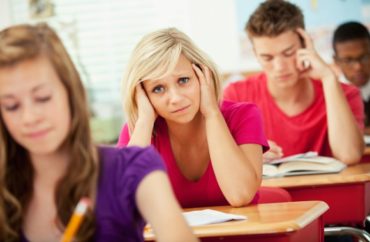
The ‘lost year’ disrupted a whole profession
Before COVID, teachers in K-12 public schools frequently complained about low pay. And yet, by and large, they stuck it out. That told us something.
Many economists contrast “stated preferences” with “revealed preferences” and place much more importance on revealed preferences. They do this because, provided you have a voice box, you can say anything at any time for any reason. When you have to choose among real options with your limited time and resources, you might give a more considered response.
By staying in their jobs, what teachers were telling us was that they liked the overall bargain of teaching. They were ultimately okay with the pay, the hours, the lifestyle.
No, you wouldn’t get rich being a teacher. But there was the job security, the good benefits, the summers off, status in the classroom, admiration in the community, some measure of satisfaction from watching pupils learn things.
So it was a little bit surprising to me that the teachers unions fought like rabid wolverines to keep teachers out of the classrooms this past school year.
The global pandemic had one really nice feature to it, if global pandemics can have nice features. COVID didn’t have great effectiveness against children, and especially young children. Once they had sized this up, many nations successfully reopened in-class education and this limited opening didn’t lead to mass outbreaks.
In contrast, whenever folks – usually parents – suggested doing that in America, teachers union mouthpieces effectively shouted them down. What were you, you monster: an anti-masker, an anti-vaxxer, a super-spreader? You didn’t care one whit about grandma. You were probably racist and kicked puppies and kittens as well.
I do not blame most American teachers for this ugly response, for two reasons.
One, there was an awful lot of COVID hysteria out there that could be difficult to cut through. Many otherwise good and sane people got caught up in it.
Two, in spite of all that, many dedicated teachers desperately wanted to get their students back into the classrooms. They were not allowed to gather their students together because of union politics, insurance issues, and school bureaucracy.
Still, what happened happened. The damage is done. This past year was awful academically for American students who are not self-motivated learners, which is most of them.
Many parents saw it coming. They pulled their kids out of school to prevent a “lost year,” or found other ways to supplement their kids’ education. Going even from the lowest possible numbers, homeschooling doubled.
Now, we are seeing a bevy of studies show that American teachers are seriously stressed by their jobs and dropping out in non-negligible numbers.
It is fair game to point out that some of these studies were funded by teachers unions, who are using them as a political cudgel to beat concessions out of hapless school districts.
Yet I think these studies are capturing something important as well. The whole profession of public school teaching has been disrupted. Teachers know this. They can feel it. Some are leaving. Others who are sticking it out are experiencing tremendous anxiety about what’s coming next.
Public education as a whole wasn’t great in America before COVID. Schools essentially functioned as state-sponsored daycare, with some learning thrown in.
As long as it kept going, the great mass of parents, politicians, and businesses signaled by their own revealed preferences that they were okay with that. People kept paying their taxes, sending their kids to public school in great numbers, and passing those property levies to give schools additional funding.
Now, the wheels have come off. Public schools have a dropout crisis to deal with, a year of education that only half-happened, a huge cohort of homeschoolers who will eventually press for public funding, and unprecedented progress for school-choice programs.
That’s a lot to deal with. The pressures will stretch public education and lead to many knock-on changes that will be no picnic for K-12 teachers going forward. Their unions, having fought so hard to shut down classrooms over this past school year, will have fewer members and a whole lot less clout to help smooth out the shocks.
MORE: American homeschooling is way up, and likely to stay up
IMAGE: Locke_Photography.Shutterstock
Like The College Fix on Facebook / Follow us on Twitter






Please join the conversation about our stories on Facebook, Twitter, Instagram, Reddit, MeWe, Rumble, Gab, Minds and Gettr.